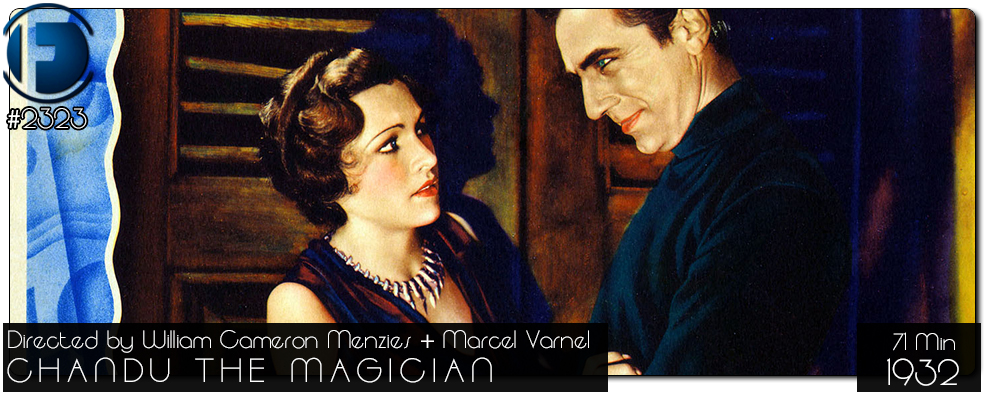Movie Review – Chandu The Magician
Principal Cast : Edmund Lowe, Bela Lugosi, Irene Ware, Herbert Mundin, Henry B Walthall, Weldon Heyburn, June Lang, Michael Stuart, Virginia Hammond.
Synopsis: When delusional madman Roxor kidnaps a scientist in hopes of using his death ray to achieve world dominance, he is opposed by Chandu, a powerful hypnotist and yogi.
********
Lower Kingdom Egyptian supernatural shenanigans form the backdrop to this sprightly, fast-paced and incredibly racist adventure comedy from 1932, a product of a bygone era and a remarkable glimpse into made-for-children chuckles of the day. With Bela Lugosi in formidable capital-V Villain form, and some tremendously inventive visual effects and direction, the pulp fiction of Chandu The Magician is delightfully entertaining on the most superficial level imaginable. One suspects this film, based on a radio play popular at the time, and its serialised sequel a few years later, are indicative of the public’s fascination with magic and the exotic, more specifically the African and Middle Eastern cultures that captured the imagination at the turn of the 20th Century, and while there’s some archaic stereotypes delivered in this rousing sprint to the entertain, there’s a lot of silly fun to be found beneath the studio-bound sandlots.
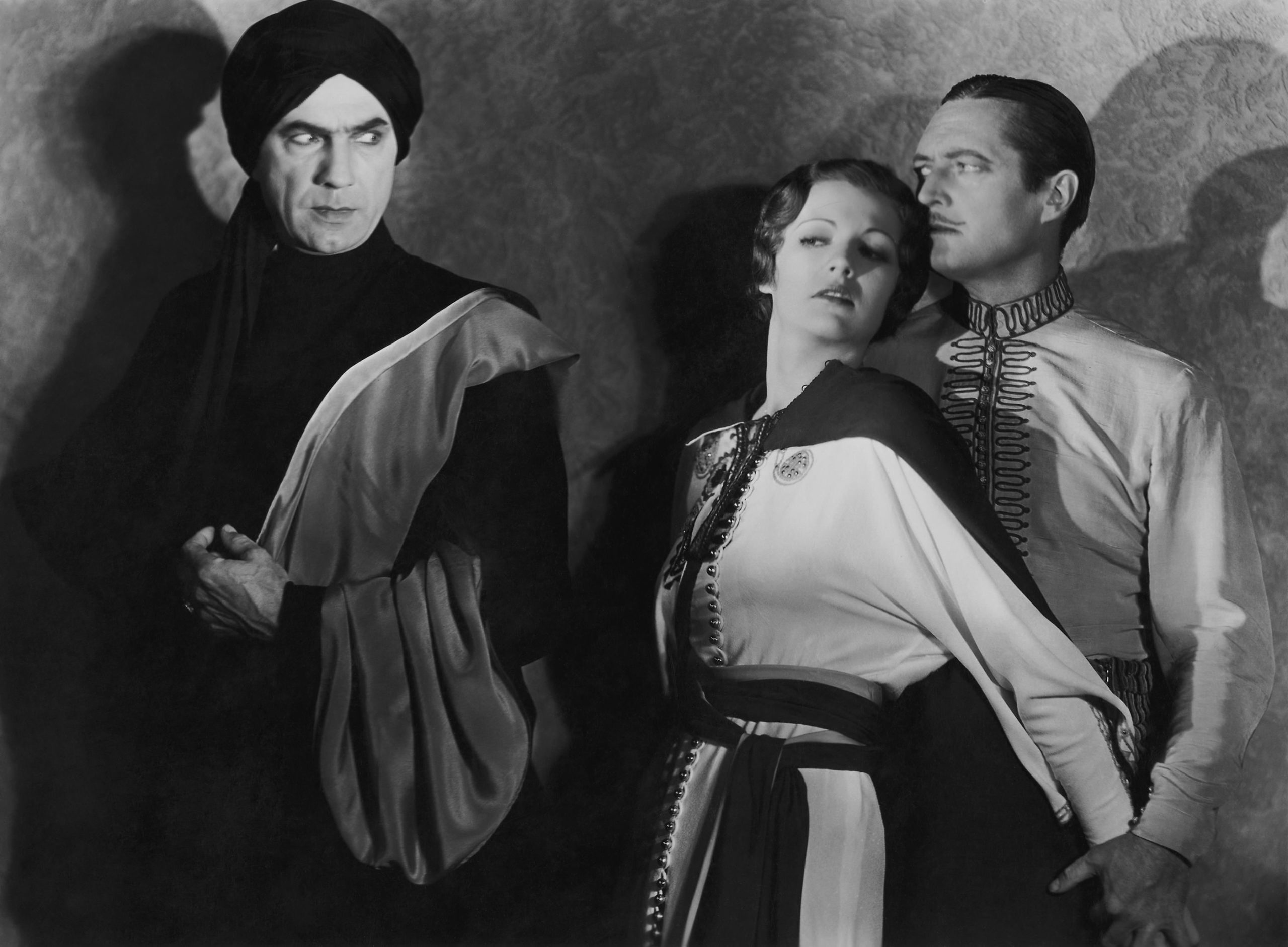
The story follows Frank Chandler (Edmund Lowe), a man who has spent years in the East mastering the secrets of magic and mysticism under the tutelage of a yogi. Upon completing his training, Chandler adopts the mystical name “Chandu” and is bestowed with powers of hypnosis, teleportation, and the ability to see into the future. He is tasked with using his abilities to fight evil and protect the innocent. Chandu’s mission becomes urgent when the diabolical megalomaniac Roxor (Bela Lugosi) kidnaps his friend, the brilliant scientist Robert Regent, who has invented a powerful death ray. Roxor plans to use the death ray to dominate the world. Chandu must use his magical powers to thwart Roxor’s plan, rescue Regent, and save the world from impending doom. Princess Nadji (Irene Ware) becomes Chandu’s ally and romantic interest, providing him with both moral and emotional support as he battles the forces of darkness. Albert Miggles (Herbert Mundin), a comedic character, also assists Chandu, offering light-hearted moments amidst the tension and drama.
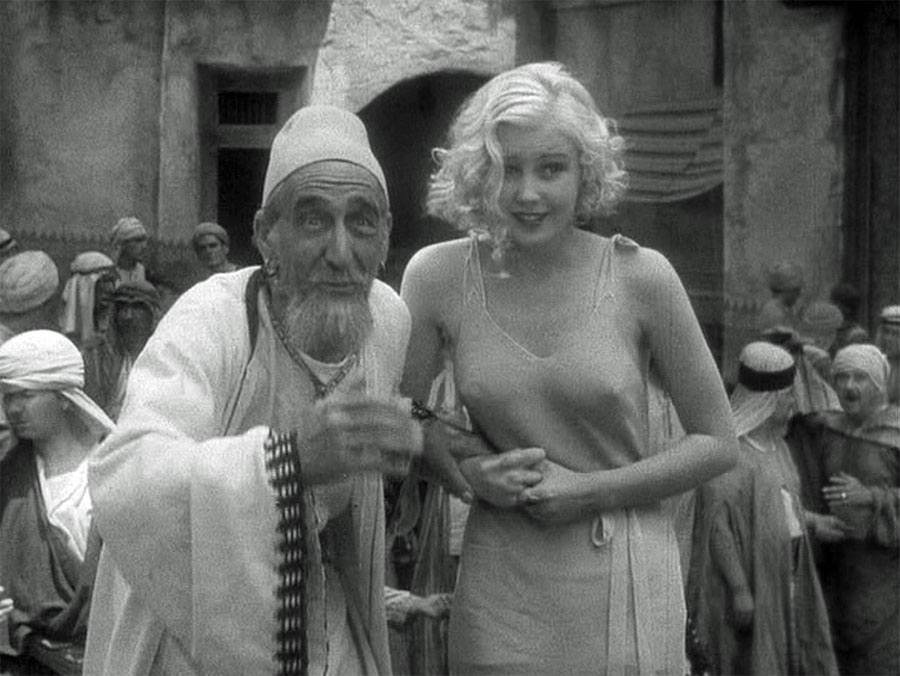
Kids these days may not be aware of it, but before we had access to unlimited streaming, internet and a gazillion channels of television, one of the world’s largest entertainment mediums was radio. You know, the shit you listen to in the car sometimes, either with FM or AM on the dial. Your parents or grandparents may have it on a station with an angry white man railing about the world’s ills. You know, radio. Well, back in the early 1900’s, radio – a relatively newfangled invention at the time – was in need to fill the airwaves with content (a situation not entirely dissimilar to today’s flood of digital platforms) and turned to serialised adventure storytelling to slip between advertisements. Popular radio plays, coupled with sound effects and a stable of often very talented voice actors, would be performed in brief, episodic broadcasts that elicited much excitement from the listening audience, and in particular youngsters glued to the speaker with tales from literally anywhere across, under and above the earth. One of these radio serials, Chandu The Magician, was very popular in the early 1930’s, and so 20th Century Fox, looking for stuff to compete with Universal’s hugely successful Dracula (1930) and Frankenstein (1931) monsters films, decided to turn the action-adventure romp into a feature film.
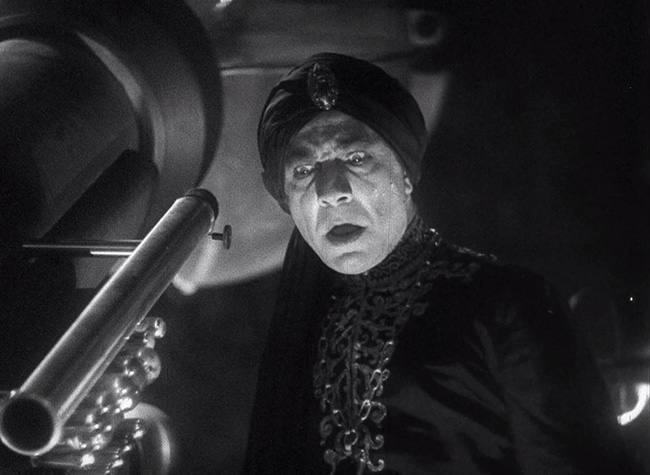
Chandu The Magician is a hugely engaging product of its time, complete with stereotypes and archetypes that may make viewers today cringe with their racial and misogynistic tendencies, and with real energy and pacing the film is a blast of supernatural hokum that evokes the joy of a simpler – and far less politically correct – Hollywood. The film’s plot and roster of character never escape the radio-play feel of episodic plot mechanics, with a rise and fall, rise and fall of expedient action and cliffhanger beats within the relatively brief hour-and-change runtime, but thanks to brisk editing, fantastic production design and some remarkable directorial choices and achievements, the film’s status as one of the better early exponents of this material can’t be undersold. The acting and script are almost secondary to the star wattage of Bela Lugosi, as the film’s villain Roxor, and the square-jawed all-American heroism of Edmund Lowe’s Chandu, who pulls faces, waves his hands about and generally personifies mystery as he goes about saving the world. Chandu isn’t perhaps as well known in popular culture as his contemporaries, The Shadow, the Phantom, or Mandrake The Magician (the latter two created by Lee Falk), which is a shame because the potential of this franchise was quite large had Fox decided to continue beyond a single 12-episode film sequel, the incredibly inventively named The Return of Chandu, in 1934.
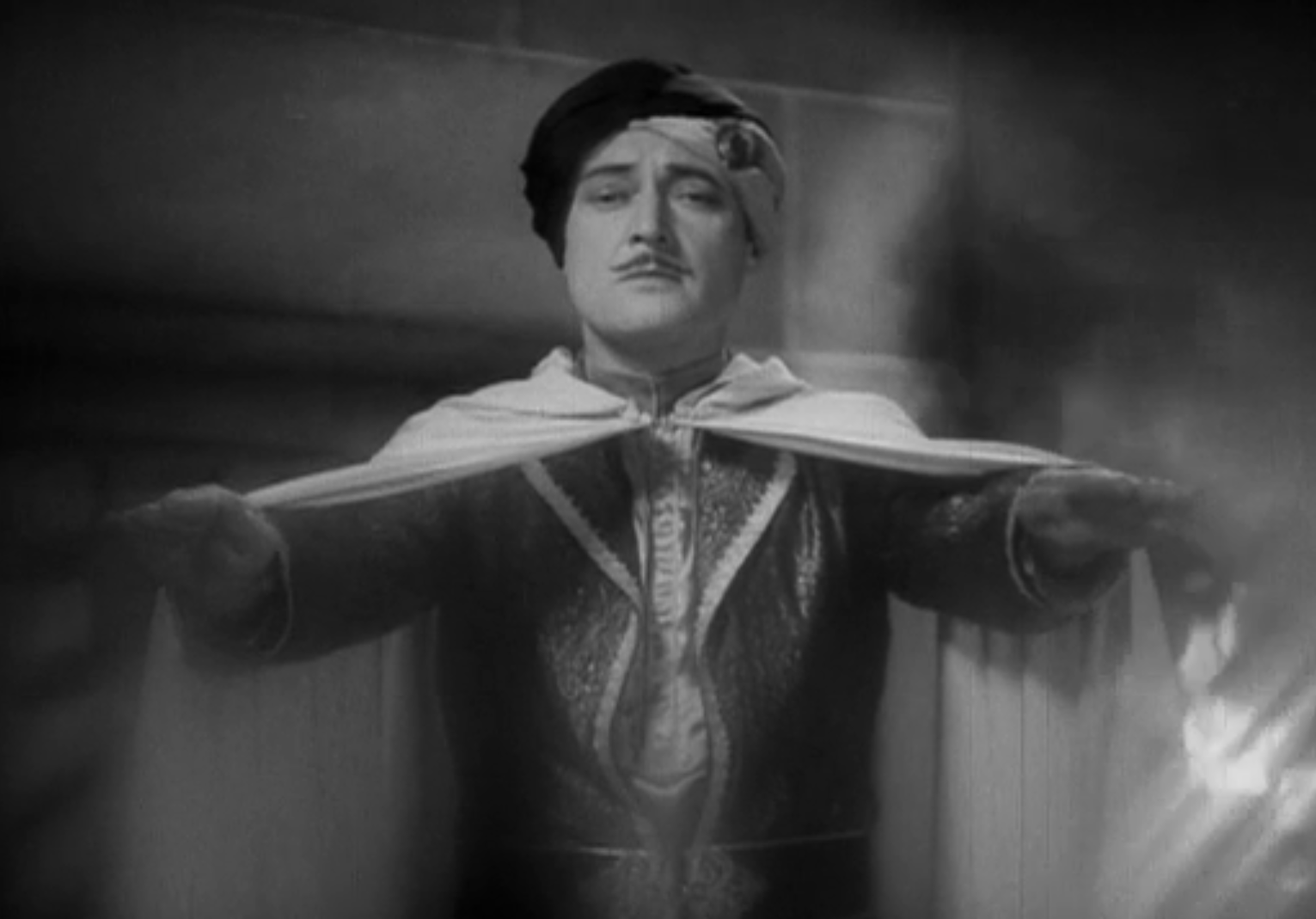
Pop-culture wilderness aside, the film is delightful fun, albeit in a stodgy, 1930’s film kind of way. The visual effects are remarkably effective for their time, with everything from double exposures and miniatures and split screens employed to produce the plot’s gamut of requirements. It’s a cartoonish cavalcade of near-misses, trapdoors and death rays, all squeezed into a conspicuously short movie that feels lighter and fluffier than the plot synopsis might have you believe. Bela Lugosi is the main draw as the film’s villain, while Edmund Lowe does his best as the titular Chandu, although in fairness he’s not the “mysterious, supernatural” hero I imagine in my minds eye for this type of thing. Admittedly, for a film set in Egypt there does not appear to be any actors of Middle Eastern decent on-screen, instead a bunch of darker skinned Americans or Brits portray a number of supporting roles. One such role, the comedic relief character of the very British Albert Miggles, is played by Herbert Mundin in such a “ooww lordy Guv’na” way I could feel my eyes rolling through the back of my own skull; there’s little room for nuance, however, as the film barrels along in its chases, races and exceptionally minimalist exposition. This speed and expeditious storytelling allows the film to focus on the “action”, of which there is a high amount, and in particular on Chandu’s magical powers, most of which are startlingly well executed for a film of this vintage.
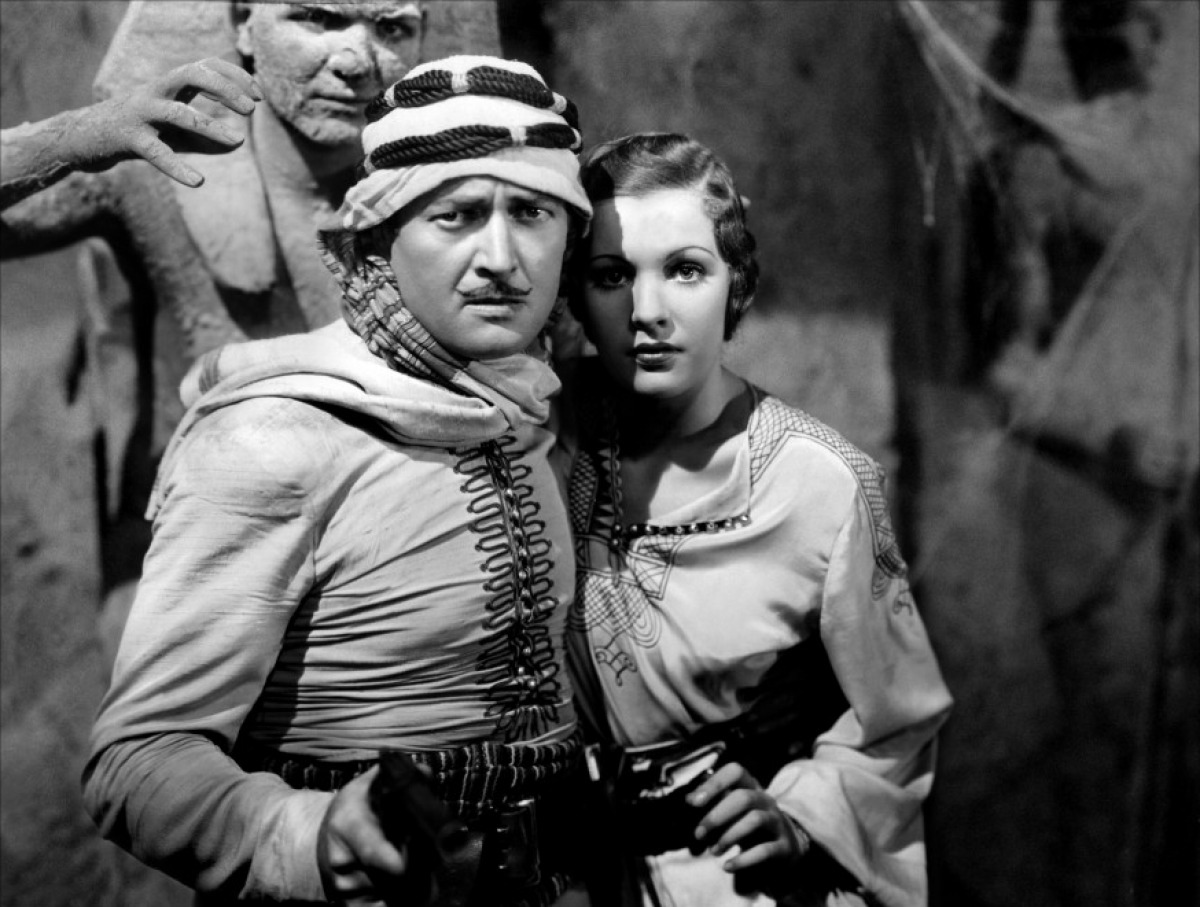
Another point to make about the film’s vintage is its overt, unsubtle racial stereotypes, most of which were prevalent back in the 1930’s when the film was made, and facets of which are unavoidable. Given the film’s setting, there’s a distinct undercurrent of “Arabs are dirty” generalisation sweeping throughout, a glaring issue contrasted against the all-white cast and absurdist nature of the film. Irene Ware is also the whitest Egyptian princess I’ve ever seen, while June Lang’s nubile Betty Lou being sold off at a slave market – while she’s sexy as hell – has a distinct bitterly racist overtone that derails my appreciation for the movie. While one must accept filmed art as a product of its time, that’s not to excuse it or somehow minimise the impact this kind of deleterious storytelling had on folks from these regions, but rather we should use it as a teaching tool for younger viewers to appreciate with context.
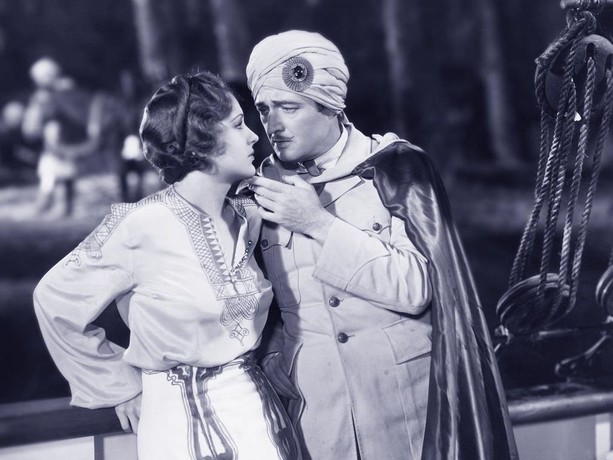
Chandu The Magician is fast-paced and energetic and packed full of entertainment. That it’s stature in popular culture isn’t higher baffles me, and the fact the property never really captured the public’s attention similarly to its genre contemporaries is a curiosity indeed. That said, if you’re looking for a piece of Hollywood’s vintage serial storytelling history I’d suggest starting right here; with a delectable cast and solid production values, as well as some nice practical visual effects, Chandu The Magician has got you covered. Well worth a the hour or so investment to watch it.

